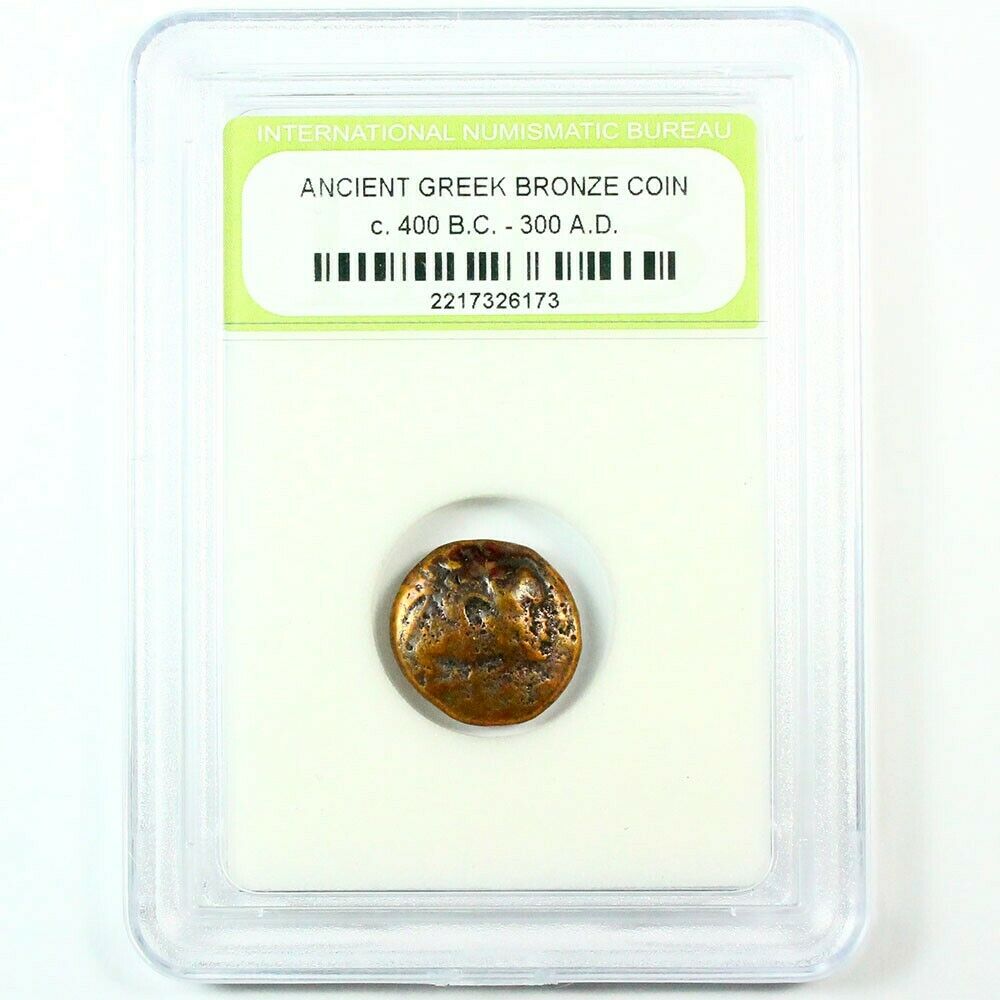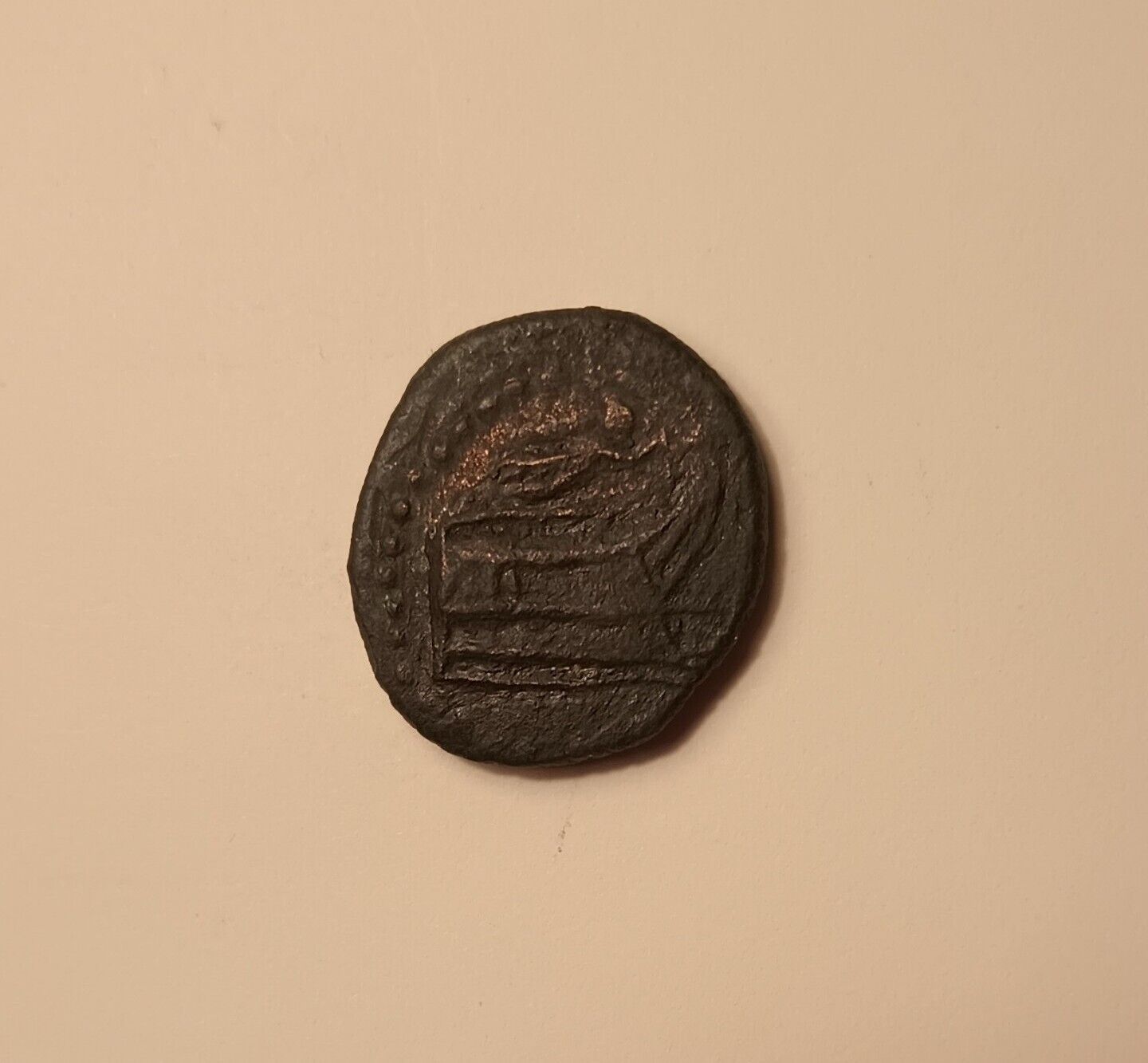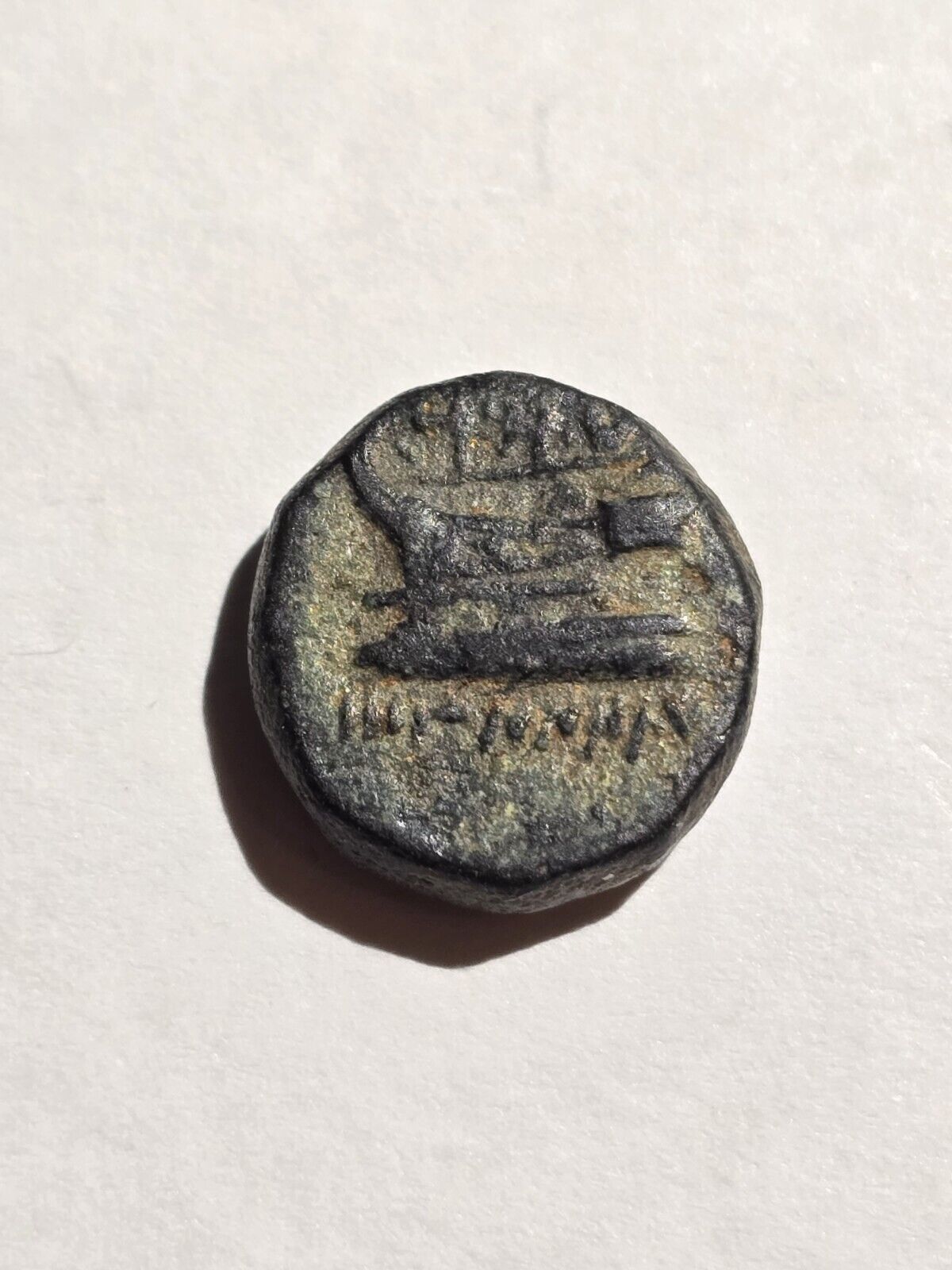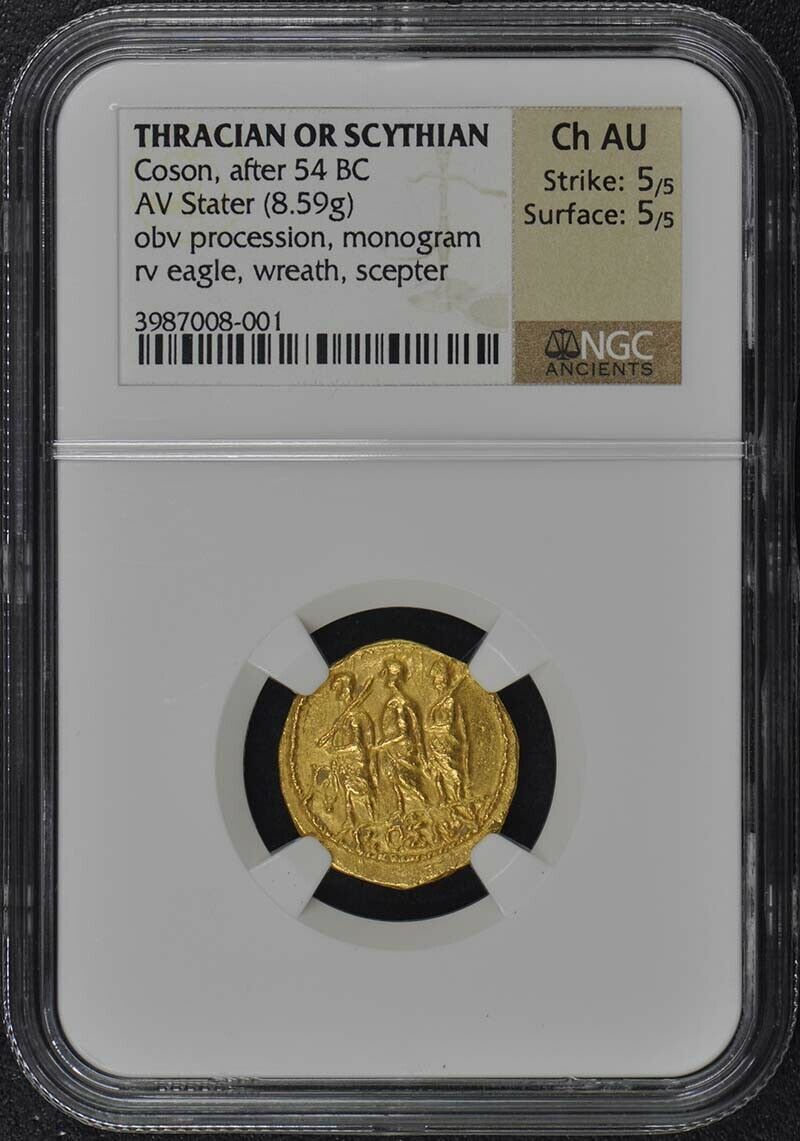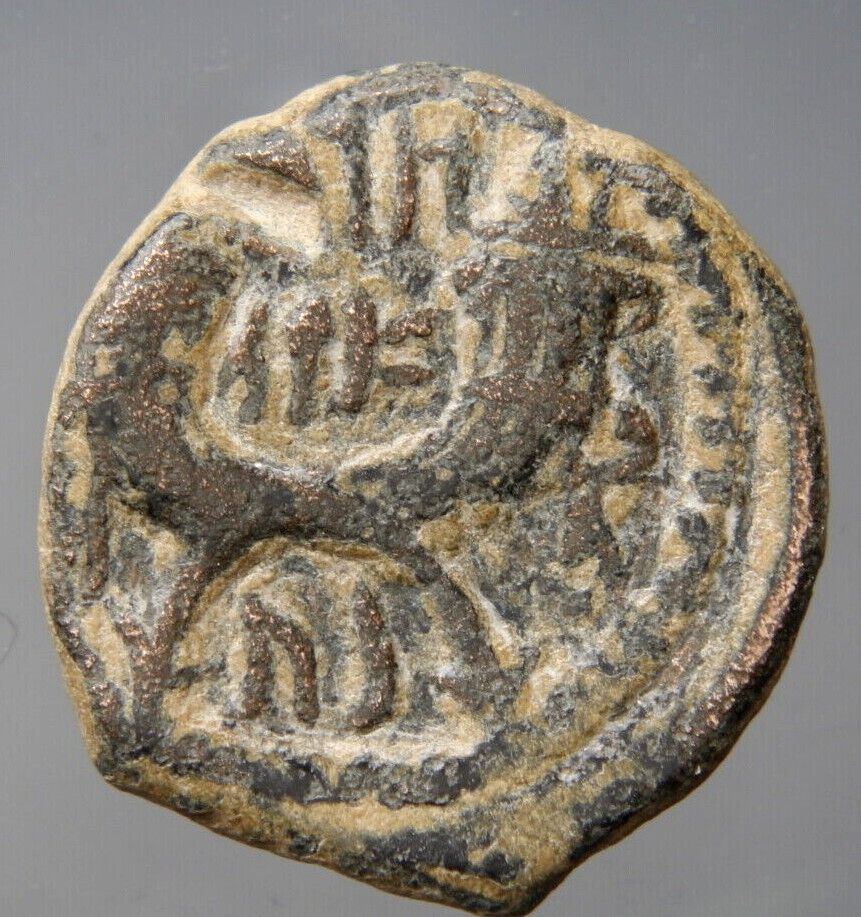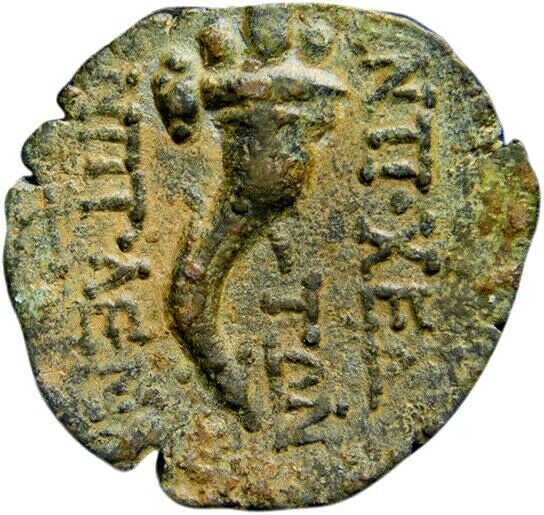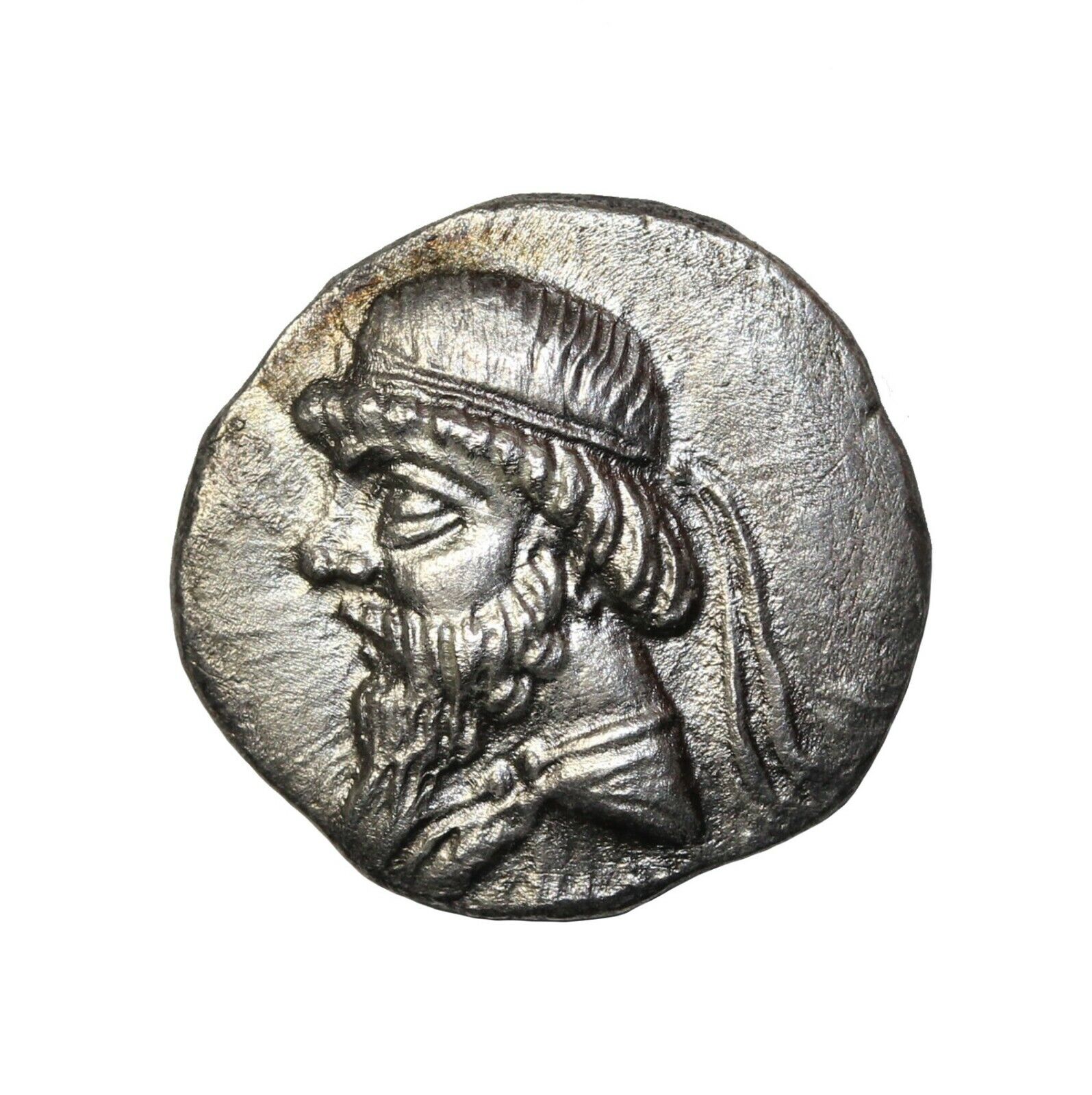-40%
Hellenistic Greek | Apameia, Phrygia | AE23 | Athena | Liberty Caps | Brass
$ 18.47
- Description
- Size Guide
Description
Apameia, Phrygia | AE23Reference
: cf. SNG Cop 163, BMC.37-9
Date
: 133-48 BCE
Obverse
: Draped bust of Athena right in crested Corinthian helmet
Reverse
: ΑΠΑΜΕΩΝ, eagle with spread wings three-quarters right, about to land on meander, star above eagle's head, caps of Dioscuri surmounted by stars on either side of meander pattern, uncertain magistrate's name in exergue
Mint
: Apameia, Phrygia
Size
: 23.0 mm
Weight
: 7.83 grams
Great aesthetics and an interesting reverse design
. Patina has been stripped from overzealous cleaning, exposing the brass alloy used to strike these coins.
Brass (copper and zinc) is an alloy that was used relatively rarely in ancient times.
This was due to the difficulty of extracting zinc from ores containing other metals . For a metal, zinc has a very low boiling point (1665 F), so furnaces that were hot enough to melt copper (1984 F) or iron (2800 F) would effectively vaporize any zinc present in the ore. Phrygia is the only region with a consistent, recorded use of brass coinage in the pre-Roman period.
The meandros pattern is a iconic Greek ( and later Roman) design element employed throughout Greek art and architecture.
It may draw inspiration from the twist and turns of the Maeander River in Anatolia ( where we get the English word "meandering"); or it could represent a labyrinth. Castor and Pollux, also known as the Gemini or Dioskouroi, were prominent figures in Greek and Roman mythology. They are represented on this coin by the twin Phyringian caps and stars placed on either side of the eagle. The Phrygian cap is a soft conical cap associated in antiquity with the inhabitants of Phrygia, the region of central Anatolia where this coin comes from. Later it came to symbolize the pursuit of liberty by being confused with the pileus, the felt cap of emancipated Roman slaves. Following the assassination of Julius Caesar, Brutus issued coins commemorating the Ides of March with a pileus cap between two daggers.
Seventeen centuries later during the American Revolution, the Sons of Liberty would wear Phyringian caps (mixing them up with the pileus) to symbolize the desire for freedom from Great Britain.
Some surface roughness on reverse.
Policies
I apply the highest ethical standards in selling ancient coins. All coins are guaranteed to be genuine and any item found to be otherwise may be returned for a full refund. The most important thing is that you are happy with your new coin(s)!
All coins are shipped in PVC-free, archival-grade coin flips and inserts made of acid-free paper
Domestic (USA) shipping only
If you purchase multiple items please message me before you pay and I will combine the shipping for you.
I accept all returns within 30 calendar days upon receipt of the item. No explanation is required for the return, but it would be appreciated. Any item which has been altered from its original state may not be returned.
Don't see what you're looking for? Just shoot me a message, I might have it but haven't gotten around to listing it!








